Binoculars vs monocular – which are the optimum optics
We take the wide view on the battle of binoculars vs monocular to see which is best for activities like hiking and bird watching
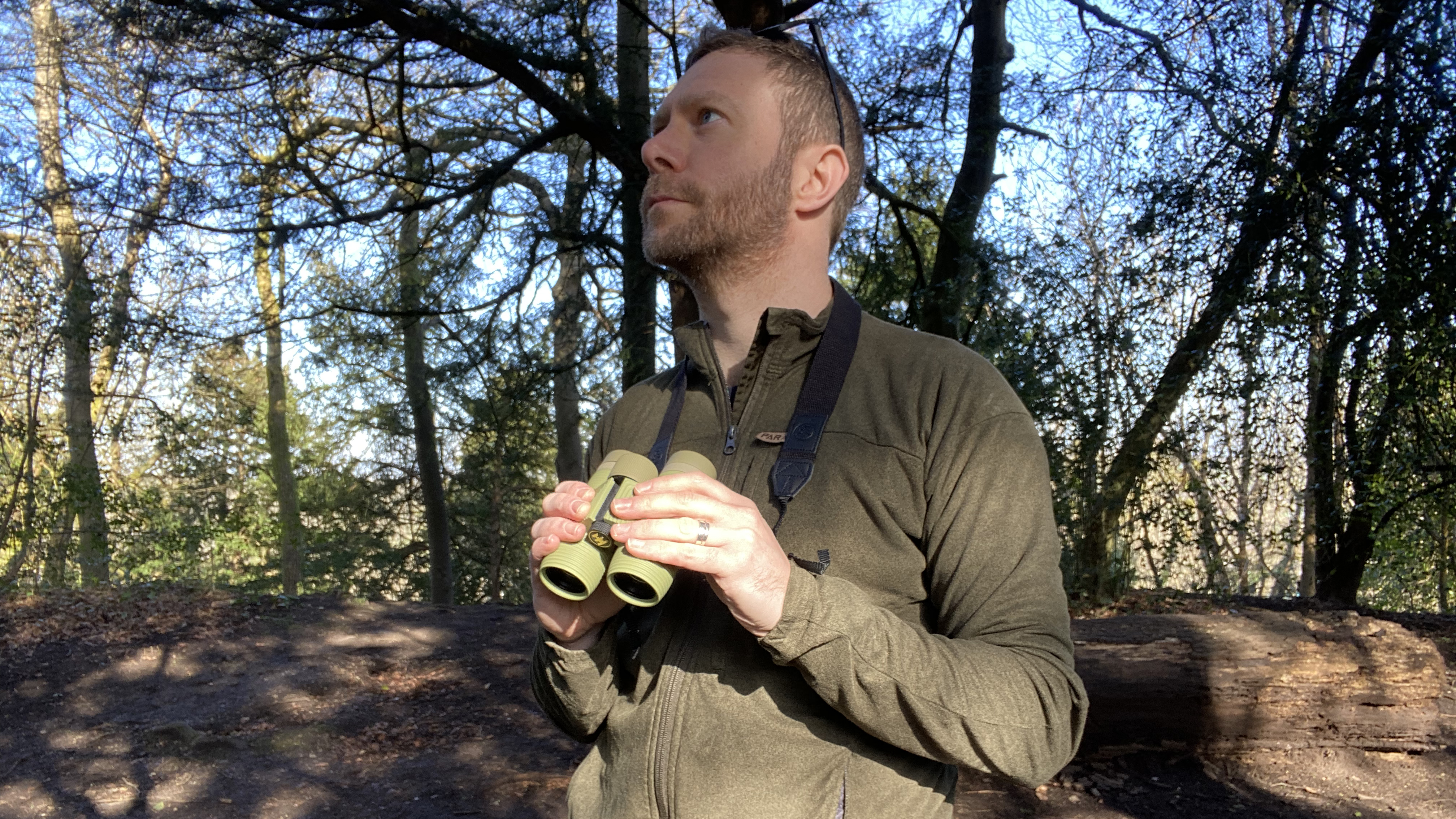
There are many reasons you might want to magnify either distant objects or treasures underfoot while out in the backcountry. From birdwatching and general nature watching to route finding and incredulously viewing climbers or alpinists progress up a terrifying ridge, optics reveal the outdoors in a way that the naked eye simply can't.
So, binoculars vs monocular, which is the ideal tool for enhancing your wilderness experience? Both have their distinct advantages and disadvantages and, while most people will be familiar with binoculars, there's a good chance you haven't considered using a monocular. These more compact devices are ideal for fast and light hikers, taking up far less space than the double-barrelled binocular.
However, with both, you can zoom in on grizzly bears feasting on sockeye salmon in Alaska, watch bison grazing in Yellowstone National Park and gaze on golden eagles soaring low over the Colorado River. But which is better? We take the wide view on binoculars vs monocular for hiking and bird watching to help you pick the best option for enjoying the views on your adventures.
Meet the expert
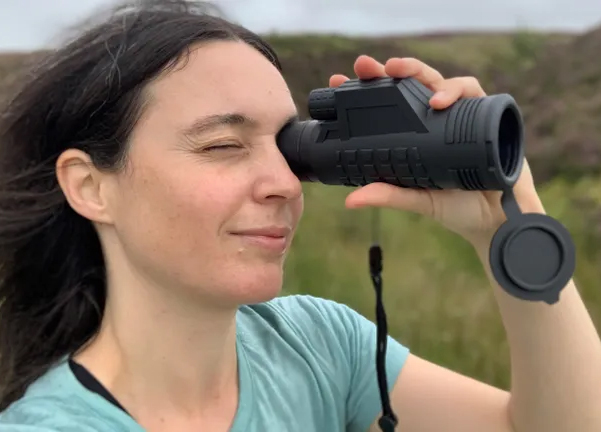
Julia is one of Advnture's main gear experts and, thanks to her passion for nature, she's no stranger to binoculars or monoculars. She lives not far from the Scottish Highlands, so is spoilt for choice when it comes to viewing wild birdlife.
Today's best deals
Binoculars vs monocular: weight and packability
- A monocular takes up less space and weighs less in a backpack
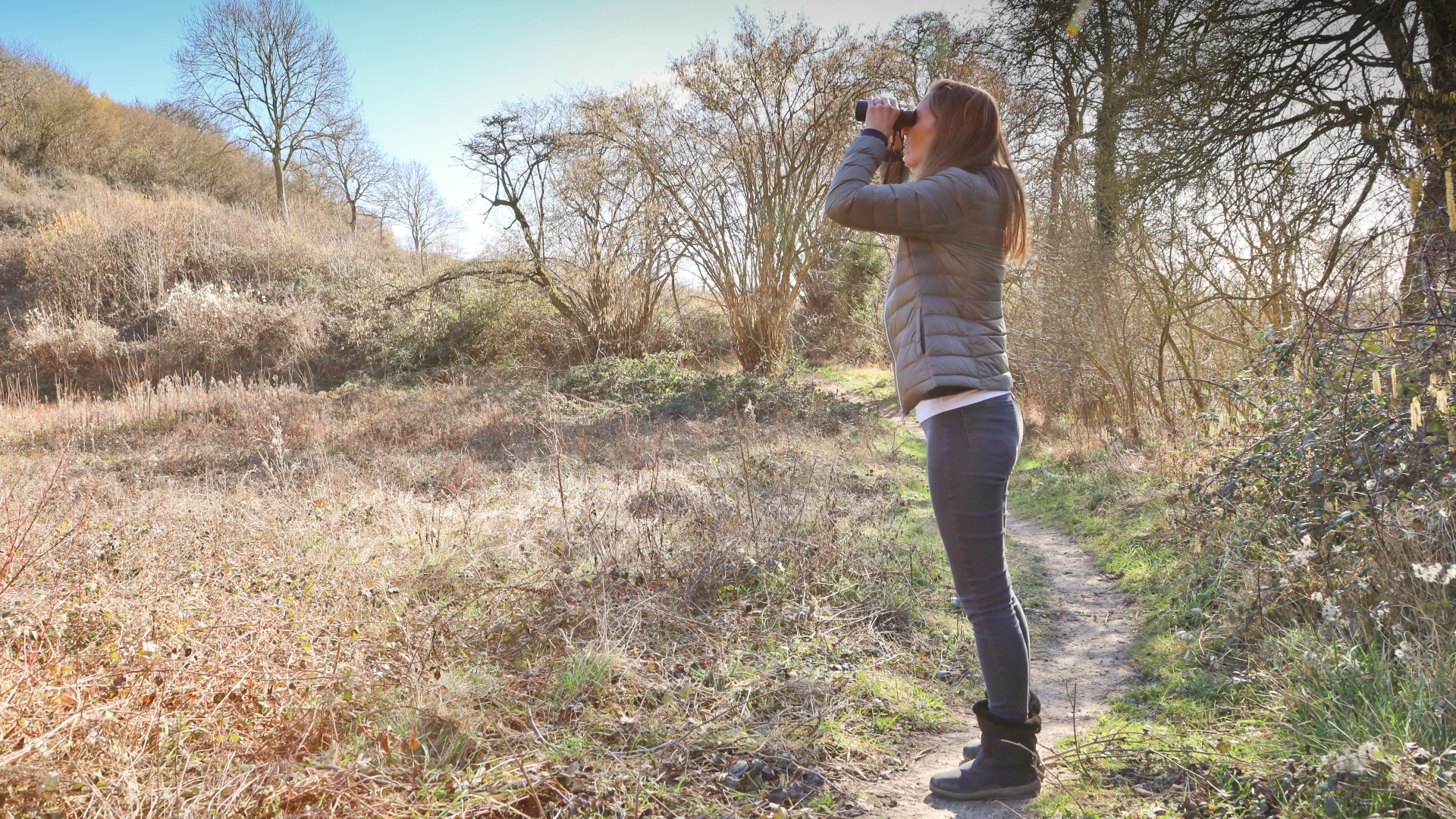
If you’re worried about adding weight or taking up space in your backpack, naturally the monocular is going to weigh less and pack more easily, since it’s half the size of a pair of binoculars. The difference here can be quite substantial – in our picks for the best binoculars, the lightest pair is the Nikon Travelite, which comes in at 9.3oz, while the Brunton Echo Zoom Monocular weighs a mere 3.2oz in comparison.
That said, there are lots of lighter weight binoculars out there and you can easily wear your binoculars around your neck using a good strap, in which case they won’t take up any room at all in your pack. But then again, you can probably pop a monocular in the pocket of your waterproof jacket for the same outcome.
Magnification and image quality
- Binoculars naturally provide a wider image
- This leads to a better viewing experience
- A monocular still provides the magnification required for birdwatching
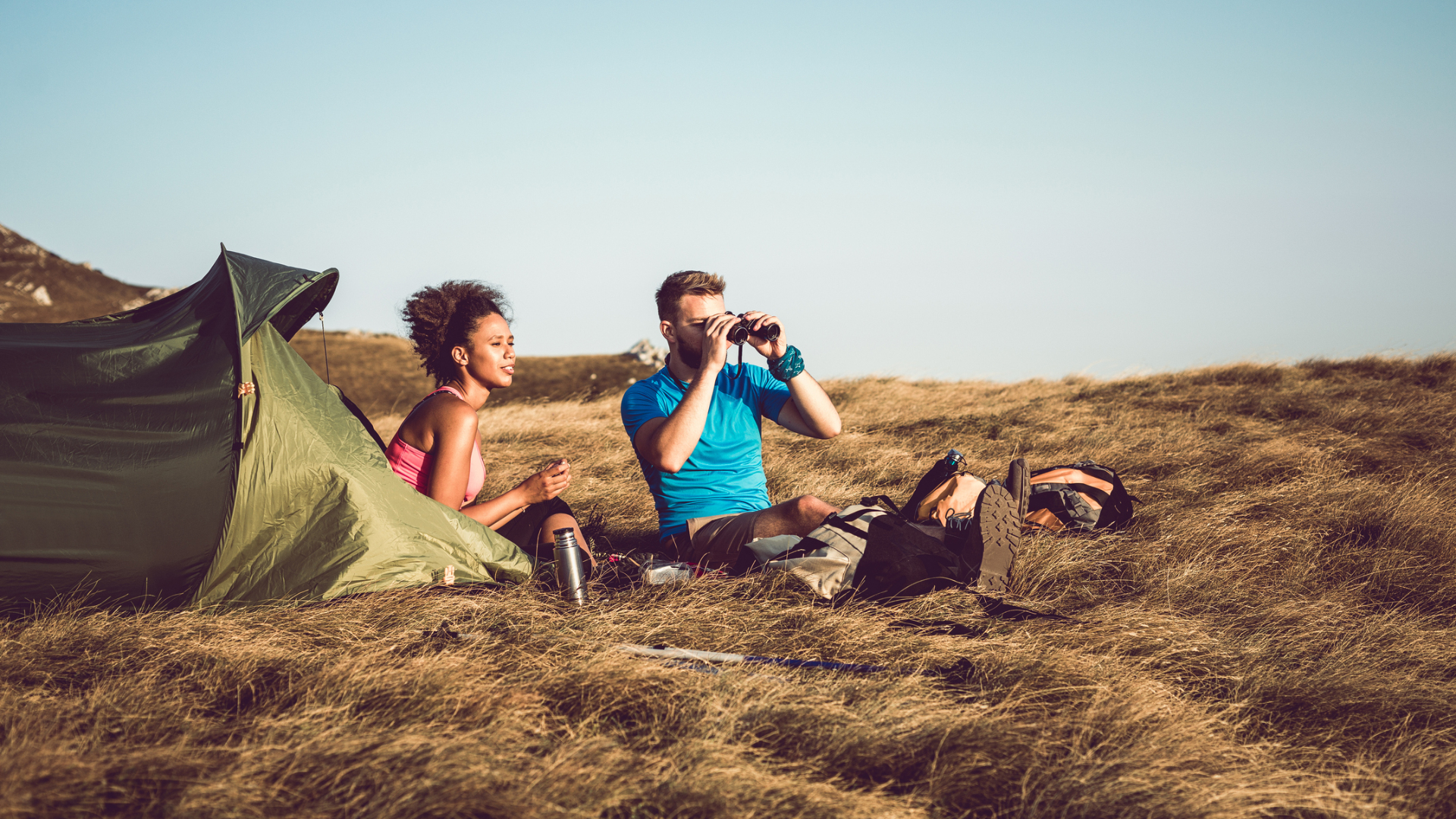
Both come with a fairly wide range of magnification, but the generally agreed upon standard for most bird watching is 8x magnification, and you’ll find plenty of both in that range. Binoculars naturally do provide a wider image than a monocular since you have two lenses to let in more light. With two lenses and the use of both eyes, many users find that a pair of binoculars does offer a better viewing experience, though the technical differences may be more marginal than you might think.
Even though monoculars are smaller, you might be surprised to discover that they often offer all the magnification needed for bird watching. You can also just go for a bigger monocular and the bigger lens will let in more light, but you'll always be using just one eye.
All the latest inspiration, tips and guides to help you plan your next Advnture!
Ease of use and comfort
- Binoculars can take a little longer to focus
- However, the two handed operation makes them feel more stable
- An advantage of a monocular is that it gives you a free hand
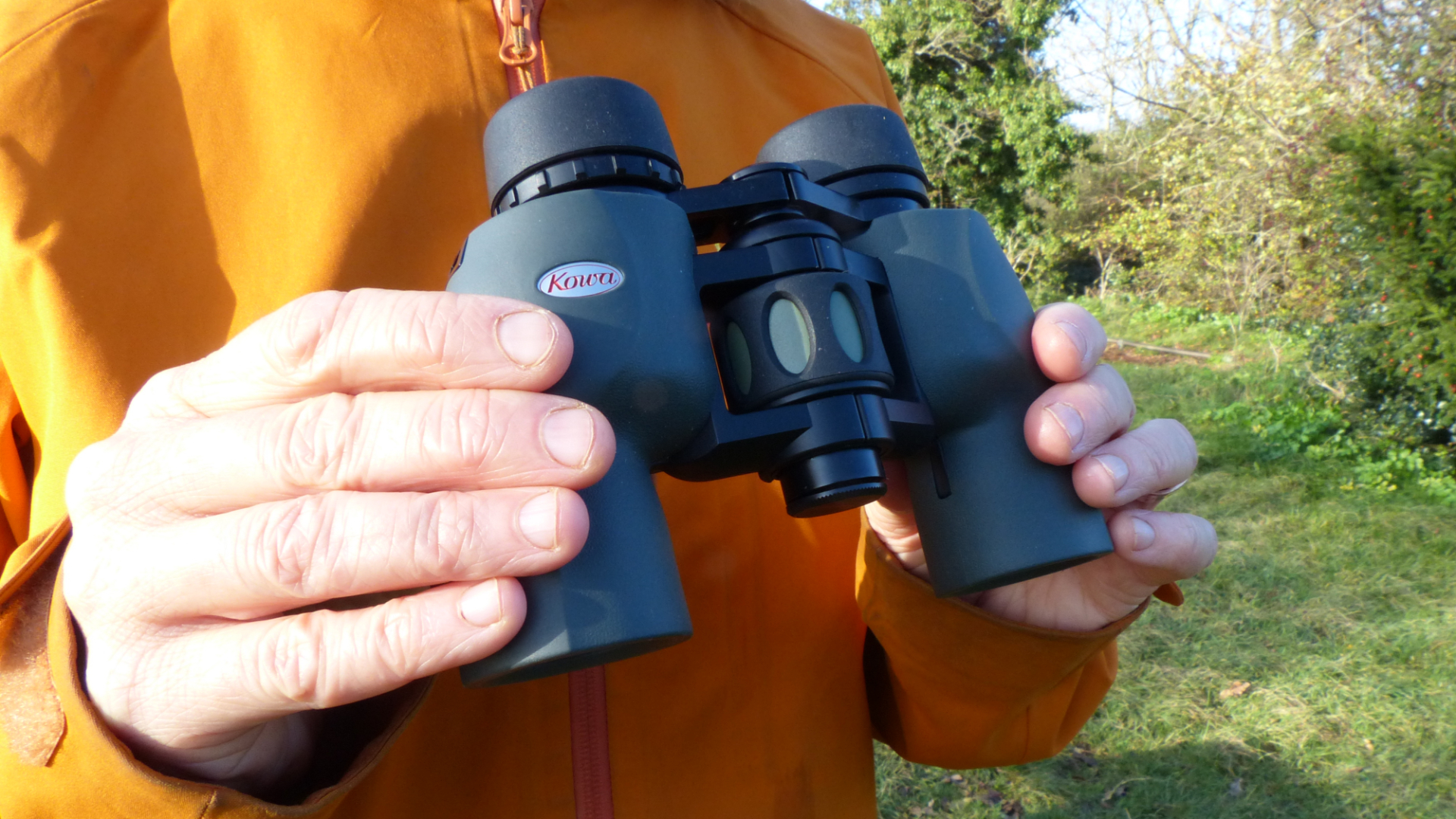
Binoculars can take a little longer to focus and get that warbler in your sights, and while they require the use of both hands, many people find this feels more balanced and steady – it’s also not really clear what you’d need the other hand for while you’re bird watching, but if you do need it for something, you’ll want to go with the monocular.
Monoculars give you a free hand if needed, and make it easier to set sights on your target and focus, but some users might find that they’re not as steady. Using only one eye also takes some getting used to, and can even cause eye strain or headache if you’re using them for a long time. This one comes down to quite a bit of personal preference, but if you’re going to be using them for long periods, your eyes might be happier with binoculars.
Weather resistance
- There's no real disparity between binoculars and monoculars when it comes to weather resistance

Because you’re going to be using your binoculars or monocular outside, you obviously want them to be as bulletproof as possible. That means waterproof in case of showers, fog-resistant and shockproof in case you drop them (a carrying strap and non-slip grip will help with the latter). We can’t find any obvious disparity between the two in this regard, so it’s really just down to making sure you choose a model that is built to last. Also, remember that anti fog sprays and wipes will work on the lenses.
Price
- Generally speaking, a monocular is cheaper than binoculars
- Though you can get good value or spend a lot on either
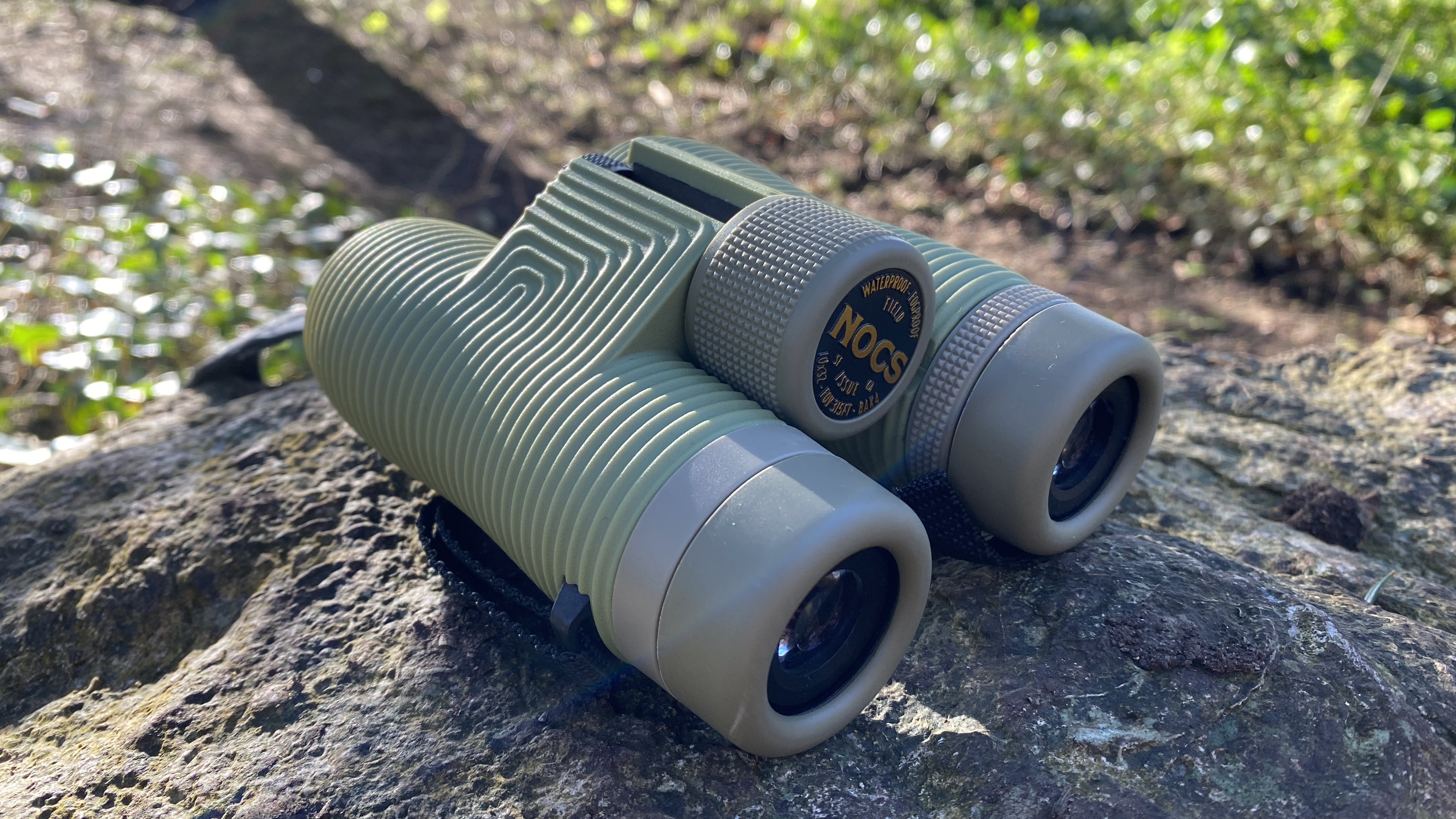
Owing to the smaller amount of materials used in the making of a monocular, you can definitely save quite a bit if you go with this option, even when you’re comparing binoculars and monoculars of equal quality. That’s not to say that you can’t drop a pretty penny on a good monocular like the Bushnell Equinox Z2 if you want to, but generally speaking the monocular will be more budget friendly.
Comparison table
| Header Cell - Column 0 | Binoculars | Monocular |
|---|---|---|
| Weight and packability | Heavier and bulkier than a monocular, but can be worn around your neck to free up room in your pack | Lighter and smaller than binoculars, and can be stashed in a pocket |
| Magnification and image quality | Plenty of binoculars with 8x magnification for bird watching, plus two lenses provides wider view | Plenty of monoculars with 8x magnification for bird watching, but only one lens |
| Ease of use and comfort | Take a littler longer to find your target and focus, but easy to hold steady with two hands and easy on the eyes | Quick to find your target and focus, only require one hand which can be less stable, less easy on the eyes |
| Weather resistance | Lots of waterproof, dustproof, fog proof and shock proof models available | Lots of waterproof, dustproof, fog proof and shock proof models available |
| Price | Generally pricier than a monocular of similar quality | Generally cheaper than a monocular of similar quality |
The verdict
- To save weight, bulk and money, go for a monocular
- For a wider view and general viewing quality, binoculars win hands down
Basically, this one comes down to your priorities and activities. If you want to save on weight, bulk and money, you’ll want to go with a monocular, especially if you’re backpacking or thru-hiking and traveling long distances. If getting a wide view is the most important thing to you, you’re not traveling too far on foot and you might be using them for a long period of time and don’t want to strain your eyes, you’ll do no wrong with a good pair of binoculars. It’s also really worth getting your hands – and eyes – on both before you buy, because choosing between the two can really come down to how you like the feel of them.
Julia Clarke is a staff writer for Advnture.com and the author of the book Restorative Yoga for Beginners. She loves to explore mountains on foot, bike, skis and belay and then recover on the the yoga mat. Julia graduated with a degree in journalism in 2004 and spent eight years working as a radio presenter in Kansas City, Vermont, Boston and New York City before discovering the joys of the Rocky Mountains. She then detoured west to Colorado and enjoyed 11 years teaching yoga in Vail before returning to her hometown of Glasgow, Scotland in 2020 to focus on family and writing.

